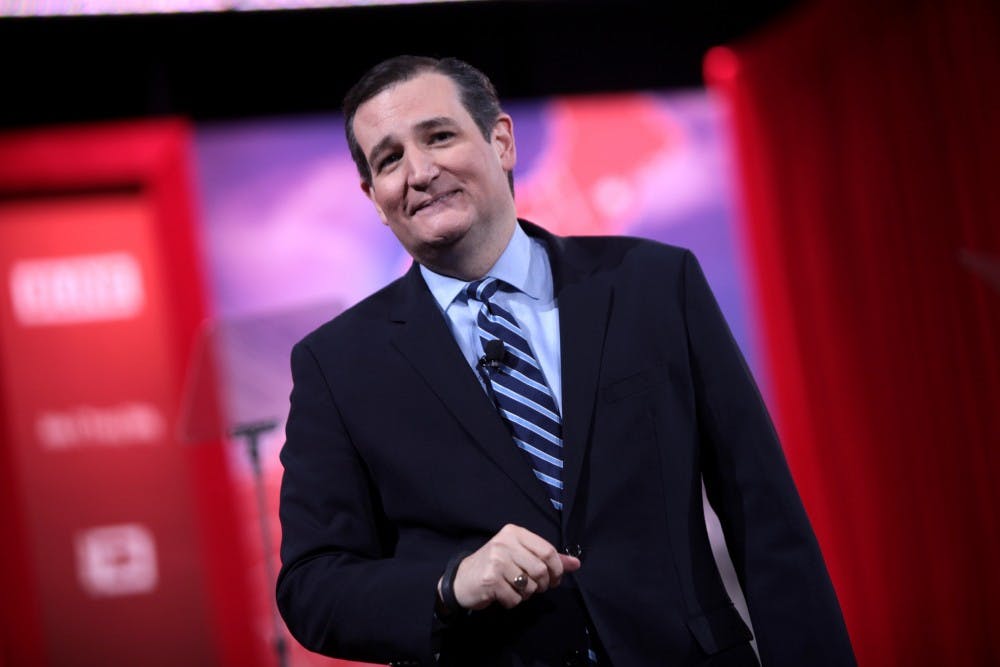Senator Ted Cruz represents, in many ways, the extremes of the current field. He was the first candidate to enter the race. According to 538 he is also more conservative than any other major candidate this cycle as well as every post-Eisenhower Republican nominee. He even makes Ronald Reagan look downright moderate when you start comparing stances. Unlike Dr. Ben Carson there isn’t much of interest in Cruz’s early life. He was born to an American mother and Cuban father in Canada, which can be off-putting for Tea Partiers who spent the last decade arguing about President Obama’s citizenship. Cruz went to Princeton University and became a top-tier debater there. At Harvard Law School he came very close to winning the global debating championships.
He eventually served as an adviser to George W. Bush’s 2000 campaign where he worked on Bush v. Gore. However, he had proven to have an abrasive personality and was passed over for a major job in the administration. Instead he ended up as Solicitor General of Texas where he argued before the Supreme Court nine times.
In 2012 Cruz ran for an open senate seat in Texas, winning the nomination with endorsements from Sarah Palin, Ron Paul, Mark Levin and many other Tea Party-aligned figures and groups. He won election and almost immediately started grating against Republican leadership. Less than three months into his term Foreign Policy deemed him “the most hated man in the Senate.”
He went on to gain more fame and infamy for circumventing party leadership and force a government shutdown in 2013 in order to defund the Affordable Care Act in a gambit that ultimately failed, cost billions and enshrined him as a grassroots hero and establishment villain.
Cruz is outspoken. That’s just the best way to put it. Ontheissues.org, one of the most commonly referenced sites for positions, lists most of his stances as “strongly supports/opposes.” He is unabashedly pro-life, pro-Israel, anti-Iran and anti-gun control. He supports a flat tax that could be worked out “on the back of a postcard” and he wants to abolish the IRS. He does not believe in climate change and, as chairman of the subcommittee overseeing NASA, tried to prohibit the agency from researching Earth science entirely.
Not much of that breaks from the center of the modern GOP in theory. His differences in policy are generally on relatively minor issues or the extent to which he publicly opposes or supports measures. But his main disconnects from the center lie in rhetoric and methodology. The government shutdown is a good example. Almost all major Republicans publicly want to repeal Obamacare, so his opposition to the bill isn’t particularly distinguishing. It was his willingness to risk tremendous political capital to potentially delay some parts of the bill, defying party leadership in the process, that makes him extremely conservative.
Rather than simply being opposed to same sex marriage, Cruz made a series of remarks that implied he opposed gay pride parades and possibly the gay community itself. But Cruz saves some of his most extreme rhetoric for trolling liberals and inciting fear among evangelicals. He’s stated that there is a “liberal fascism” out to get Christians. He frequently talks about the “hard-core left” and the “radical left” and finds no irony whatsoever in accusing them of “anti-science zealotry.”
Cruz also has a penchant for ignoring facts; the relatively nonpartisan PolitiFact has ranked more than two-thirds of his statements "Mostly False" or worse. But that’s not really relevant to him since most people calling their opponents Nazis aren’t appealing to logic. It also more or less defines the electoral strengths and weaknesses of Cruz. He can’t win moderates; he’s way too far to the right for that. His only chance is that he can use his mastery of demagoguery to gain a solid hold on the Tea Party and evangelicals during the debate phases and then take several winner-take-all states before a single establishment Republican gains enough support to start beating him.
After that he would probably be doomed against Hillary Clinton. But, he would be relying upon the Tea Party theory that a Republican candidate could win if they rally the base to vote. He would be relying upon the left having lost enthusiasm for Clinton and staying home while the right comes out in droves to elect the best thing they’ve seen since Barry Goldwater and establishment Republicans still show up to vote against another Clinton. Even then it’s possible that so many liberals fear Cruz that they would vote in droves just to keep him out of the White House.
Regardless, he could still have an impact by forcing more mainstream candidates to either try and compete with Cruz among the Tea Party and shift far, far right in the process or just ignore the Tea Party altogether, potentially destroying the far right’s national clout in the process. It’s all a gamble, but Cruz is no stranger to that.

